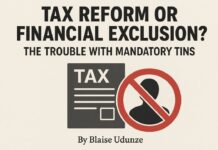By NIyi JACOBS
Nigeria’s insurance industry continues to lag far behind the banking sector, with newly released figures revealing a glaring gap in asset size and market development.
According to EnterpriseNGR, the total assets of the entire insurance sector stood at N3.88 trillion as of Q3 2024. This marks a notable rise from N2.67 trillion in 2023, showing year-on-year growth. However, the increase still leaves the industry dwarfed by its banking counterpart.
Access Corporation, Nigeria’s largest banking group by assets, reported a staggering N41.4 trillion in total assets for 2024—over ten times more than the cumulative assets of all insurance companies in the country.
The wide margin underscores the underperformance and limited market penetration of insurance in Nigeria. Despite its role in risk management and economic stability, insurance uptake remains low due to weak consumer trust, insufficient financial literacy, and regulatory hurdles.
Industry experts argue that the sector’s growth potential remains untapped and urge targeted reforms, including tax incentives, compulsory coverage enforcement, and broader financial inclusion efforts to deepen insurance penetration.
As Nigeria seeks to diversify its financial system and attract long-term capital, stakeholders believe closing the asset gap between insurance and banking could be crucial to building a more balanced and resilient economy.














